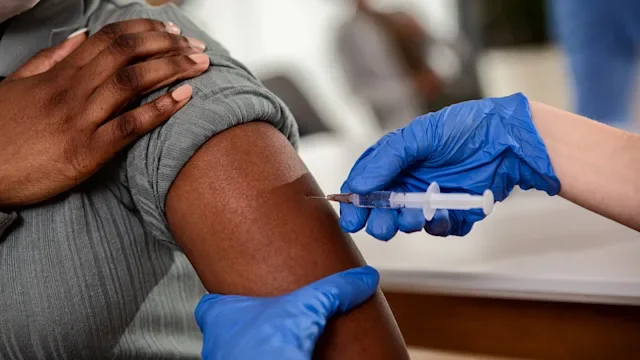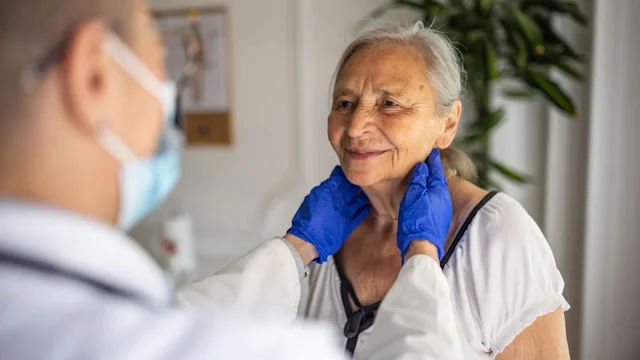What is an alternative vaccine schedule?
An alternative vaccine schedule is any plan that doesn’t line up with the CDC’s recommended vaccine schedule. It can mean getting a vaccine at a different age than recommended, or skipping a vaccine entirely.
Some parents ask for fewer vaccines to be given at a single visit than what is recommended. This usually means that some vaccines will be given late — although, sometimes, parents can schedule extra appointments and squeeze all the shots into the recommended age window. In other cases, parents choose to research and construct elaborate alternative schedules for vaccinating their children.
Why do people choose an alternative vaccine schedule?
People have different reasons for wanting to use an alternative schedule. Sometimes, there are legitimate reasons for getting a vaccine outside of the recommended age range — for example, if a child is sick with a fever at the time of their scheduled vaccine appointment, or if they will soon travel to an area of the world where a particular disease is common. In these cases, healthcare providers will recommend doing things a bit differently.
Other times, parents are worried about the vaccines their child is scheduled to receive. They might think their child’s immune system isn’t up to the task of responding to the vaccines. Or, maybe, they don’t like the idea of their child getting so many painful shots at once.
The complete answer
Childhood vaccines are given to healthy children at most checkups during the first few years of life. It can feel like babies and toddlers are always due for another set of shots! It might be tempting to put some of those vaccines off for a while.
But the truth is, there are some serious diseases out there that can really hurt kids. To keep this from happening, top public health experts looked at all the data and built a vaccination plan designed to protect everyone. This plan is the CDC Recommended Child and Adolescent Immunization Schedule.
What is the recommended vaccine schedule?
The CDC Recommended Child and Adolescent Immunization Schedule lists a recommended age for the first dose of each vaccine. Then, it gives age ranges for all the recommended booster (repeat) doses of each vaccine.
The CDC’s recommended vaccine schedule is designed to be the safest, most effective way to protect all U.S. children from 16 deadly diseases.
The illnesses included on the recommended vaccine schedule are no joke. Every one of the included diseases has the potential to terrorize our communities. It’s important to know that if we stop giving these vaccines, the diseases will come back. These diseases are not gone.
There are many factors that go into making the vaccine schedule. Here are some of them:
Which diseases are most dangerous at each age
Which diseases infants and children are most likely to be exposed to
The age when each vaccine works best
How many doses are needed of each vaccine
How far apart booster shots should be
Which age group(s) a vaccine has been tested in
Which vaccines can be grouped together into a single shot or appointment
The recommended well-child checkup schedule
Read more like this
Explore these related articles, suggested for readers like you.
This information, along with a deep understanding of childhood immunology, were used to put the schedule together. Experts review and update it again every year.
Why should I follow the recommended schedule?
When the schedule is followed, babies gain immunity against nine diseases by their first birthday, and seven more before they turn 18. Isn’t it fantastic that we can protect kids so well against these deadly threats?
Most of the recommended shots are booster doses, which means they’re repeats of shots that were given before.
Choosing to use a different schedule means sorting through all the facts about each disease, and all the facts about the vaccines available to prevent them. And that’s hard to do, even if you’re an expert in infectious diseases.
Using a different schedule also puts your child out of sync with others. This can lead to confusion, logistical headaches, and errors — like duplicated vaccinations. Worst of all, it could lead to symptoms that get overlooked because your child was not vaccinated when they should have been.
So, although it’s technically possible to spread out or delay your child’s vaccines, doing so can put your child at risk. The vaccine schedule recommended by the CDC is designed to be the safest, most efficient way to protect all children from some really scary stuff, as soon as possible.
Times when an alternative schedule makes sense
That being said, there are occasionally times when being flexible with the vaccine schedule makes sense. For example, it might make sense to adjust the schedule if:
A high-risk disease is circulating in your area.
You will be traveling to a location where a disease is more common.
There is a shortage of a recommended vaccine.
Your child has a medical condition (for example, a fever) at the time of a scheduled vaccine.
Catching up on missed vaccines
When a child misses a vaccine, they fall behind on the vaccination schedule. Kids who are born in countries with different vaccination priorities, or where certain vaccines just aren’t available, might also be behind. For these kids, it can be challenging to know which vaccines to get first.
The CDC publishes a catch-up vaccine schedule, in addition to the recommended vaccine schedule, every year. The catch-up schedule is intended to fill in these gaps and address any unusual situations related to vaccination schedules. Again, the point of the catch-up schedule is to protect all kids from infectious diseases as quickly, safely, and effectively as possible.
How we decided
Many people who work in children’s health know the CDC’s recommended vaccine schedule by heart. Others use it as a reference when they need to make decisions for their patients. For this piece, a number of sources were consulted in order to give the most robust and trustworthy information possible.
Understanding how the schedule was made
The first step to trusting the schedule is knowing where it came from.
Adding vaccines to the schedule
When a new vaccine has been studied and approved by the FDA, a group of experts, called the Advisory Committee on Immunization Practices (ACIP), reviews the information about that new vaccine. These public health specialists discuss whether it makes sense to consider the new vaccine for the recommended schedule.
The information they consider includes how dangerous the disease is, how safe and effective the vaccine is, and other issues around vaccine logistics. When it makes sense for the vaccine to be added, the ACIP makes a recommendation to the CDC. The CDC makes the final decision about adding a new vaccine to the recommended vaccine schedule.
Committee reports and news releases
Many organizations have an interest in creating a strong vaccine schedule. When expert committees, like the World Health Organization, make formal statements, these documents are often publicly available. Reviewing these documents can be helpful for understanding the rationale behind vaccine-related decisions.
New vaccine research
Vaccine development is happening in thousands of laboratories all over the world. Some researchers work for private companies, and others work for research universities, governments, or other organizations. Because all of this is happening at the same time, it can be helpful to read updates that summarize progress in a particular research area. One example that was used for this piece is this review about new ideas in vaccine technology.
Clinical guidelines
The American Academy of Pediatrics (AAP) is a professional organization for doctors and other health professionals who specialize in the care of children. This organization, along with the American Academy of Family Practitioners (AAFP) and the American Academy of Obstetricians and Gynecologists (ACOG), has its own experts who review and endorse the CDC vaccine guidelines regularly. Clinical guidelines published by these organizations are used by medical professionals to make decisions about caring for individuals.
Keep in mind
The recommended vaccine schedule changes over time. In fact, experts re-examine it every year, top to bottom. Most of the time, it stays the same. But sometimes, changes are made on the basis of new information or new products that have been developed.
Scientists and public health officials make adjustments to the vaccine schedule when new data shows them a better way to do things. It can be frustrating to see guidelines change, but vaccine science is an evolving field. Ultimately, it makes us all safer to have top scientists always looking for better ways to do things. And, at the end of the day, the goal of the recommendations is to use all the knowledge we have to keep us as safe as possible.
What to do if you have concerns
Many parents ask questions about vaccines and the recommended vaccine schedule. It’s natural to want more information, and most healthcare providers are happy to provide answers.
Understand what it is you’re worried about
It’s surprising how often parents are concerned about shots — but don’t know why. It’s as if they’ve picked up on a general vibe that they can’t pin down. Most kids get their shots on time. If you feel the need to go a different route, ask yourself what it is specifically that’s troubling you.
Some worries are tied to a particular shot
Of the vaccines your child is scheduled to receive, is there one in particular that you’ve heard something about? Vaccines are different from each other — and the diseases they prevent are different from each other, too. Some of the vaccines on the recommended schedule have had rocky lives in the media and popular press. Others get confused with older vaccines that had different side effects.
If there’s a particular vaccine you have questions about, make a plan to talk about it with your provider. The other vaccines on the schedule don’t need to be disrupted while you get your concerns sorted out.
Some parents worry that ‘the system’ is flawed
Our universal vaccination program — the idea that all children should be vaccinated against deadly diseases — has saved countless lives. But one risk of telling everyone to do something, no matter how helpful it is, is that conspiracy theories emerge. And you don’t have to look hard to find conspiracy theories about childhood vaccines.
Tune out the madness by listening to people you trust. Your child’s healthcare provider wants what’s best for your child — just like you do. You trust your provider to know what to do when your child is sick, and to make good decisions when your child is well. Believing your healthcare provider’s advice when it comes to shots just makes sense.
Some parents worry about giving so many shots at once.
The vaccines that are recommended to go together are given that way all the time. The standard mix of vaccines that is given to 2-month-old infants, for example, is given to hundreds of babies every single day — and has been given that way for years.
It can help to realize that a child’s immune system is really good at fighting many germs at the same time. After all, think about how many germs are on the random things that kids put into their mouths, like toys, fingers, and dirt. The number of diseases represented in a full set of vaccinations is nothing compared with the tidal wave of actual germs kids are exposed to each day.
So maybe that means the vaccines aren’t really necessary?
Wrong. If you think kids don’t need vaccines, remember that the germs vaccines protect against can get dangerous fast. Vaccines train kids’ immune systems in advance, so they can fight those germs quickly — before they have time to do any damage.
When a pregnant person receives a vaccine, some immunity can be passed to the newborn. This immunity lasts for about 2 to 3 months before it fades.
Vaccines really work. In fact, they work so well that many of the diseases they prevent sound old-fashioned to us now. If you think your child doesn’t need a vaccine because the disease it prevents is rare, you can thank the vaccines — and all of the vaccinated people around you.
Remember, the vast majority of FDA-approved vaccines for children never show up on the recommended vaccine schedule. Only vaccines that experts believe are necessary are added.
And, if fiddling with the vaccine schedule becomes trendy, there is a real risk that some of these diseases could make an unwelcome comeback.
Shots hurt, and no one wants to hurt their baby
Yes, the pinch from a shot is unpleasant — no doubt about it. But in the scheme of things, the pain of a needle poke hurts much less than the pain that babies and kids feel in the course of their daily life and play.
If you’re worried about your child experiencing pain from shots, talk to your healthcare provider about using combination vaccines as often as possible. This can cut down on the total number of pokes your child needs to get. And getting all the recommended age-appropriate vaccines at the same visit can reduce the number of visits that involve needles and crying.
Talk to experts you trust
Vaccinating your child is important, and there are crazy people out there. Make sure you’re getting your facts from the right places.
Your child’s healthcare provider is a good place to start
If your child gets sick, you can turn to your child’s healthcare provider because you trust what they have to say. It makes sense that you’ll want their opinion when it comes to vaccinating your healthy child.
But before you start the conversation, take a minute to think about what your specific concerns are. You’ll want to know what you need to know to feel more comfortable — and keep your mind open to hearing the answers.
Healthcare professionals who work with kids think about vaccines all the time. And, even if they don’t know all the details of every vaccine from memory (there’s a lot to know!), they have trusted resources and professional guidelines available to them. Turning to the consensus of experts is taking advantage of the most powerful information we have.
Get a second opinion if you need to — but watch out for fads and misinformation
You’ll want to think carefully about where you turn for vaccine information. Some of the loudest voices on social media belong to people who don’t really understand vaccines or immunology.
The science behind our immunity and our immune systems is complex, so don’t be tempted by easy soundbites. Instead, look for the experts — the people who have dedicated their careers to understanding the concepts and improving public health.
What’s ahead
One of the most important parts of improving public health is making sure vaccine information is correct and readily available. Studies show that the more people know about vaccines, the more likely they are to get them as scheduled. This is especially important because communities without good vaccination rates are at risk of outbreaks.
Scientists are working on developing new vaccines every day. Although that’s great news for our fight against infectious diseases, don’t expect big changes to the recommended vaccine schedule anytime soon.
One thing we can hope to see in the near future is the development of a universal flu vaccine, which would provide reliable protection against all strains of influenza for several years at a time. And, although it’s not clear yet how the COVID-19 vaccine will fit into our standard vaccine schedule, the technology used to create it might prove useful in creating vaccines against other diseases.
Many vaccines being prioritized for development by the National Institutes of Health Vaccine Research Center are against diseases that aren’t common in the U.S., like Ebola, Zika, and malaria. These are important, but won’t affect most of us in our day-to-day lives. Vaccines against diseases we do worry about won’t be included unless they are effective and safe — and better than the vaccines we’re currently using.
More information and resources
Child Vaccination Across America (American Academy of Pediatrics)
Immunizations from HealthyChildren.org (American Academy of Pediatrics)
Immunization Schedules (CDC)
References
Best study we found
American Academy of Pediatrics. (2021). Child vaccination across America.
American Academy of Family Physicians. (2021). Immunizations & vaccines.
American Academy of Pediatrics. (2021). Child vaccination across America.
American Academy of Pediatrics. (2021). Immunizations.
American Academy of Pediatrics. (2021). Vaccine preventable diseases.
American College of Obstetrics and Gynecologists. (2021). Child, adult, and adolescent immunization schedules.
Attwell, K., et al. (2021). Increasing vaccine acceptance using evidence-based approaches and policies: Insights from research on behavioural and social determinants presented at the 7th Annual Vaccine Acceptance meeting.
Cedars Sinai. (2019). KPCC: Uptick in measles.
Centers for Disease Control and Prevention. (2014). Vaccine testing and the approval process.
Centers for Disease Control and Prevention. (2020). Reasons to follow the schedule.
Centers for Disease Control and Prevention. (2020). Role of the ACIP in CDC's vaccine recommendations.
Centers for Disease Control and Prevention. (2020). Top 7 things you need to know.
Centers for Disease Control and Prevention. (2021). 2021 recommended child and adolescent vaccine schedule.
Centers for Disease Control and Prevention. (2021). Catchup immunization schedule.
Centers for Disease Control and Prevention. (2021). Child & adolescent immunization schedule.
Centers for Disease Control and Prevention. (2021). Immunization schedules.
Centers for Disease Control and Prevention. (2021). Recommended vaccines by age.
Centers for Disease Control and Prevention. (2021). Schedule changes & guidance.
Centers for Disease Control and Prevention. (2021). Who sets the vaccine schedule.
Children’s Hospital of Philadelphia. (2019). Vaccine schedule: Altering the schedule.
Hough-Telford, C., et al. (2021). Vaccine refusals and requests for alternate vaccine schedules (AVS): National surveys of pediatricians. American Academy of Pediatrics.
Immunization Action Coalition. (2021). Ask the experts: Experts answer questions about vaccines.
Immunization Action Coalition. (2021). Scheduling vaccines.
Immunization Action Coalition: Advisory Committee on Immunization Practices. (2021). Official Releases.
Immunization Action Coalition: Advisory Committee on Immunization Practices. (2021). Vaccine Policy and Licensing.
Irvine, D. J., et al. (2020). Controlling timing and location in vaccines. Advanced Drug Delivery Reviews.
National Institute of Allergy and Infectious Diseases. (2021). Vaccine research center.
Paules, C. I., et al. (2017). The pathway to a universal influenza vaccine.
Phadke, V. K., et al. (2016). Association between vaccine refusal and vaccine-preventable diseases in the United States.
Robinson, P., et al. (2021). Public health practitioner perspectives on dealing with measles outbreaks if high anti-vaccination sentiment is present.

Why trust our experts?



















